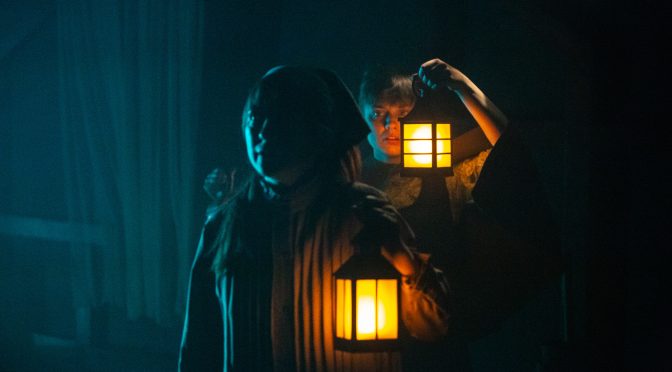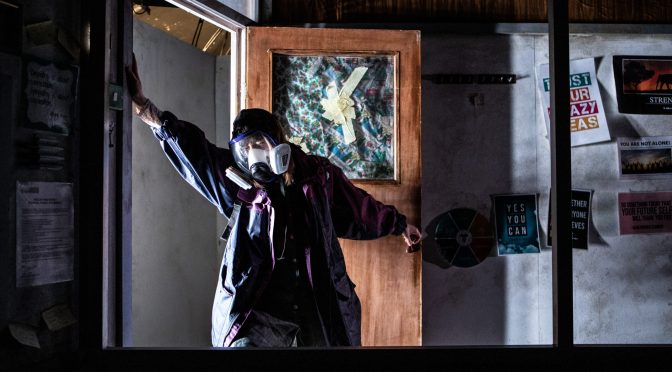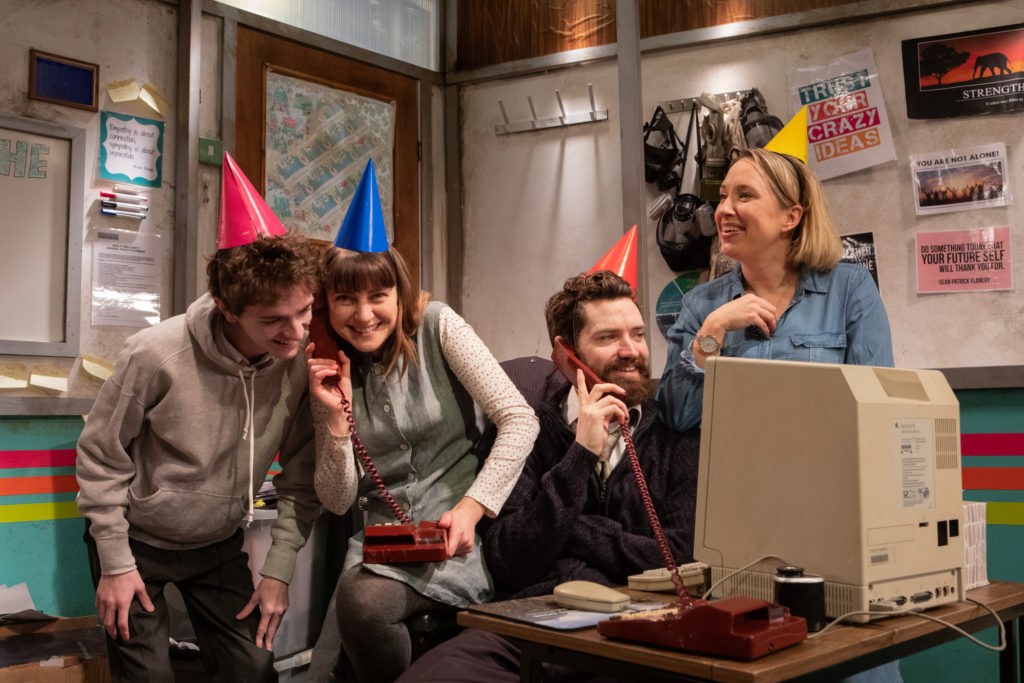Part of the Footprints Festival, curated to showcase new talent, Talene Monahon’s play is inspired by Arthur Miller’s The Crucible. With events set before the Salem witch trials, it is a prequel, of sorts, but might be best thought of as a dialogue with Miller’s classic. And a clever conversation it is too. I’m not sure The Good John Proctor stands on its own – you do need to know about its context. But it comes close and deserves praise.
There are only four characters here – Abigail, Betty, Mary and Mercy. They are performed by Anna Fordham, Sabrina Wu, Lydia Larson, and Amber Sylvia Edwards respectively. Each performer succeeds in making the roles their own. Being younger (then, in a final epilogue scene, older) they are not quite Miller’s creations. The key move on Monahon’s part is to focus on the girls’ youth.
The action unfolds before the characters come to be used by the wider community for profit or vengeance. Monahon benefits from her focus. We see ideas about sin and the supernatural impacting these young lives. And how anxieties about growing up, physically and emotionally, take their toll. There is more – to increasingly powerful effect- as it becomes clear how the girls suffer under the men in charge of them. There are whippings and servitude to consider. The titular hero of Miller’s work becomes a sinister figure. It all gives rise to an atmospheric production, complete with spooks and whoops, thanks to director Anna Ryder’s strict handling of the swift, sharp scenes and some bold design from Laura Howard and Bella Kear.
There’s an interesting decision about language. Rather than getting bogged down in seventeenth century America, there are touches of the modern high school behind how the girls speak. Hearing “what’s up kids” jars – but it is effective. The technique might be more consistent (maybe more extreme?). But the only problem is that it takes a while to appreciate that it works.
Using speech outside the historical period is important when considering another part of Monahon’s project – examining the girls’ reputation in history, including the legacy of Miller’s play. An intriguing address from Mary, who describes herself as an “ancient child”, with the house lights raised, needs elaboration but is thrilling. Far from being in awe of its source, Monahon has challenges for Miller’s play. Part of this conversation is an interrogation – one that is delivered smartly and with dramatic effect.
Until 27 January 2024
Photos by Jack Sain




